KfW is supporting controlled waste recycling and disposal in Albania with funds from the German Federal Government and EU grants. The uncontrolled waste dumps there have become a major problem for the country, neighbouring states and the Mediterranean.
On the way to Europe
How Albania is fighting against plastic waste (KfW Bankengruppe/Thomas Schuch/Christian Chua).
Is Albania still in Europe? Geographically, yes, politically, more and more. But if you leave the capital of Tirana and drive through the countryside in the south-east of Albania along the Shkumbin River, it is not quite Europe. Waste, everywhere you look. On the roads, in the ditches, on fields. Plastic waste even hangs from trees. This is because household rubbish is often dumped near rivers in the hope that the next flood will do the trick.
82-year-old Emili Petre from the town of Korça objects to this kind of disposal. It is part of her daily routine to walk to the central waste container, which is about 200 steps down the road from her house. “I collect the waste and take it there, of course,” says the spry woman. “Every morning between 5.30 am and 6.00 am, everything is collected by the bin lorry.” And then she mentions that something very special is happening in her community right now.
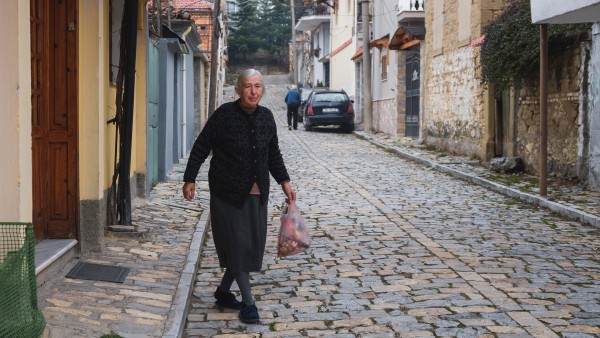
Exemplary
Day after day, 82-year-old Emili Petre brings her household rubbish to the waste container.
KfW is supporting controlled waste disposal with money from the German Federal Government. In November 2018, the new waste landfill, which was financed by KfW with around ten million euros, went into operation just outside the city gates. 200 tonnes of rubbish are collected here every day from Korça and the surrounding municipalities. The many uncontrolled waste dumps that dot the landscape are to be closed. “If we give rubbish a clear destination, it won't end up in the sea,” emphasises Christina Kern, KfW project manager for the Korça plant. Alongside the ten million euros, additional money will be made available for consulting services with the aim of supporting the participating municipalities in developing their waste concepts, publicising these concepts and promoting their acceptance. The goal is not only to ensure that waste disposal is widely practised, but also to raise awareness of how necessary and sensible it is to prevent, reduce or recycle waste.
Read more under the picture gallery.
Missing vision
In many places, household waste is discarded near rivers in the hope that the water will simply carry the rubbish away. The result: littered landscapes.
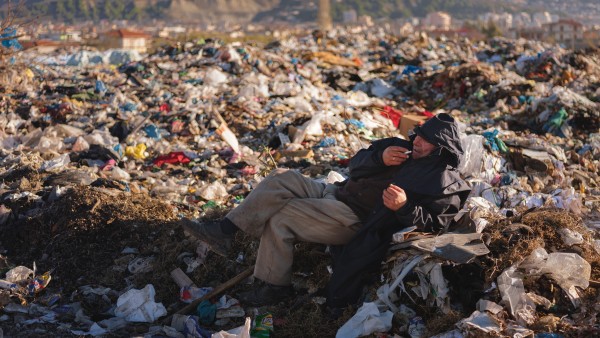
Littered landscapes
Uncontrolled waste dumps can be found everywhere across the country.
In the meantime, the waste disposal system in Korça is working so well that it's not just Mrs Petre who is proud of it. The city and its surroundings are now considered a role model. “Korça can certainly be seen as a role model for other regions,” says Hantin Bonati, Albania's Deputy Minister for Infrastructure, adding optimistically: “This is the start of a sustainable solution.”
To gauge just how far there is still to go, it is enough to take another look at the Shkumbin River. This is the route waste takes to the sea. Waste is left on the banks in spots where the river overflows. In some places, waste hangs from trees, forming bizarre works of art. And often the mouth of the river is full of waste. But most of it floats on the open sea. This angers not only many Albanians, but also neighbouring countries including Croatia, Montenegro and Greece. And Italy also keeps complaining about the dirt at the heel of its boot.
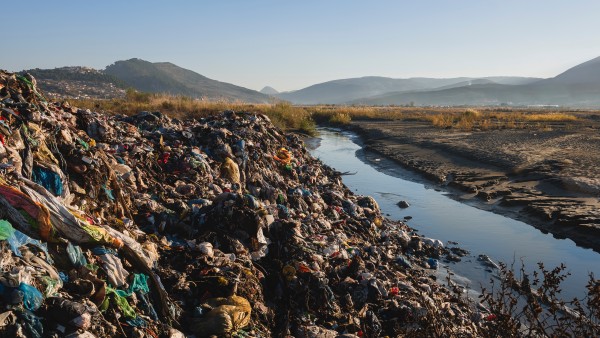
Border-crossing
Rivers take the waste from the Albanian hinterland to the Mediterranean coast. This angers not only many Albanians, but also neighbouring countries including Croatia, Montenegro and Greece.
Unlike in the past, the Albanian government has now tackled this problem, with a view to negotiations with the EU on possible accession. “Our goal is a clean Albania,” declares Deputy Infrastructure Minister Bonati. And indeed, the fight against waste is now high on Albania's political agenda. Evidence of this includes the recent ban on single-use plastic bags and the huge effort involved in the annual “Clean-up Albania” campaign. Increasingly, efforts are also being extended to the Albanian hinterland. Bonati adds: “The more Albania does its job in this area and improves its waste management, the more it contributes to the global goal of marine protection”.
And this is urgently needed. Currently, about 150 million tonnes of plastic waste are floating in the world's oceans, and at least eight million tonnes are added every year – most of it through river systems. The waste slowly decomposes into microplastics in the salt water of the oceans. It then ends up in the stomachs of marine animals and thus also harms those who eat them. Even if plastic does dissolve after decades or centuries, it never completely decomposes. This means the problem needs to be dealt with further upstream.
Get the oceans clean!
In mid-October 2018, KfW Group launched the Clean Oceans Initiative together with the European Investment Bank (EIB) and the French Agence Française de Developpement (AFD). The partners have committed an initial amount of two billion euros for reducing plastic pollution of the oceans.
Learn moreInternational partnerships like the Clean Oceans Initiative are part of the solution. Over the next five years, it will provide two billion euros to reduce marine plastic waste. KfW has launched this initiative on behalf of the German Federal Government together with the European Investment Bank and the French development bank AFD.
Albania is also part of this long-term effort. The German Federal Government is supporting the country through KfW with close to 100 million euros. In addition to Korça, the coastal town of Vlora is another project region – with the participation of the EU. Here and elsewhere in the future, the aim is not only for waste to be deposited in landfills, but also to significantly reduce waste through separate waste collection and further sorting of the residual waste,” says KfW project manager Jochen Reik, referring to the next steps. These steps are based on the recently developed national investment plan, which provides for the comprehensive modernisation of Albania's waste management system.
Emili Petre, the elderly lady from Korça, shows that large global goals also affect small community processes. Her waste no longer ends up in the sea, but in the new landfill which meets European standards. And, on the other hand, a woman who walks to a rubbish container demonstrates that a functioning waste management system in a small Albanian town can contribute to tackling global problems.
Published on KfW Stories: Tuesday, 5 February 2019
The described project contributes to the following United Nationsʼ Sustainable Development Goals
Goal 9: Build resilient infrastructure, promote sustainable industrialization and foster innovation
Non-existent or dilapidated infrastructure hinders economic efficiency and thus engenders poverty. When building infrastructure, the focus should be on sustainability, for example, by promoting environmentally-friendly means of transport. Factories and industrial facilities should also ensure that production is in line with ecological aspects to avoid unnecessary environmental pollution.

All United Nations member states adopted the 2030 Agenda in 2015. At its heart is a list of 17 goals for sustainable development, known as the Sustainable Development Goals (SDGs). Our world should become a place where people are able to live in peace with each other in ways that are ecologically compatible, socially just, and economically effective.

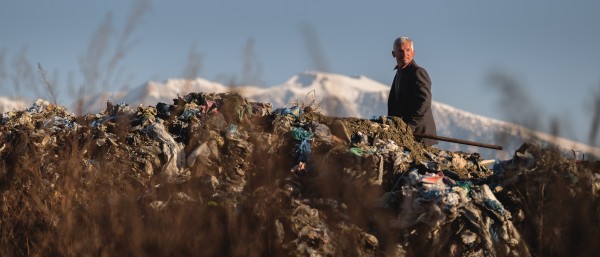
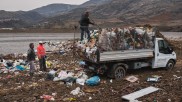
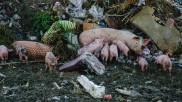
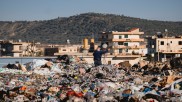
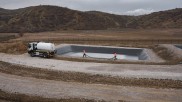
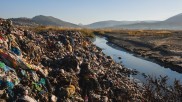
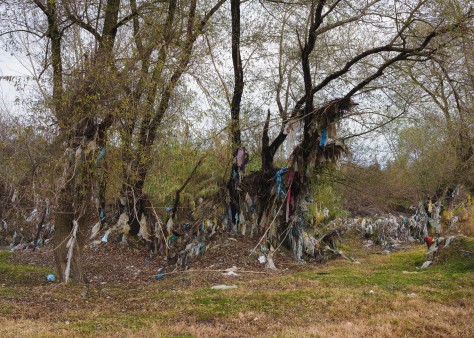
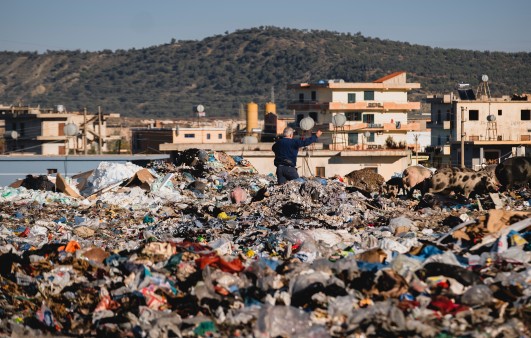
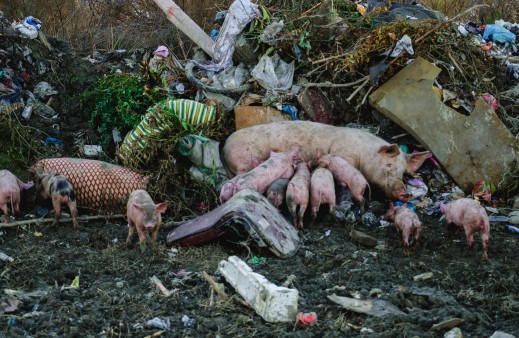
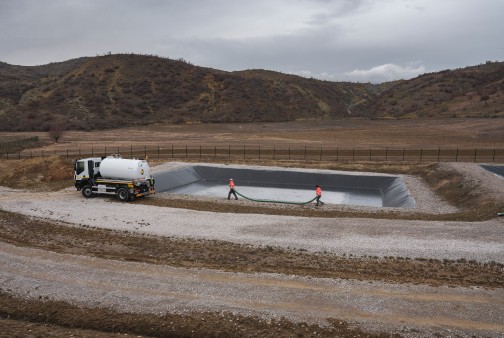
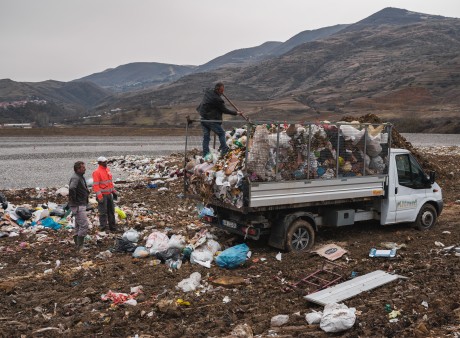





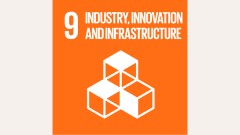
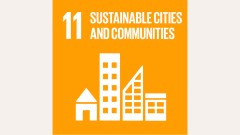
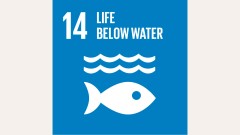
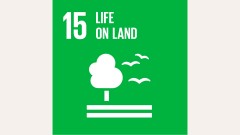
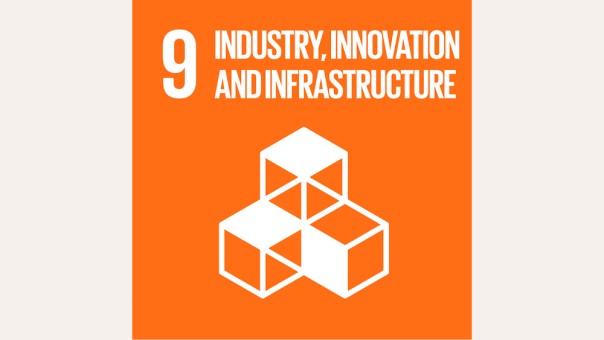
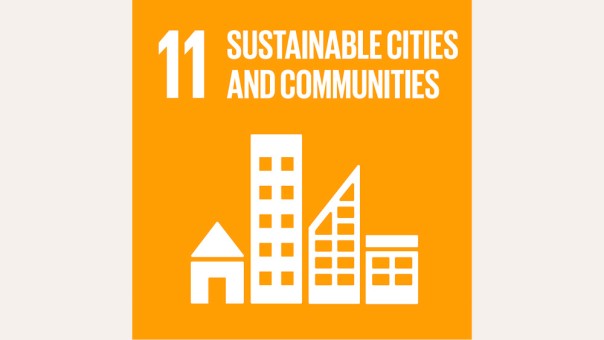
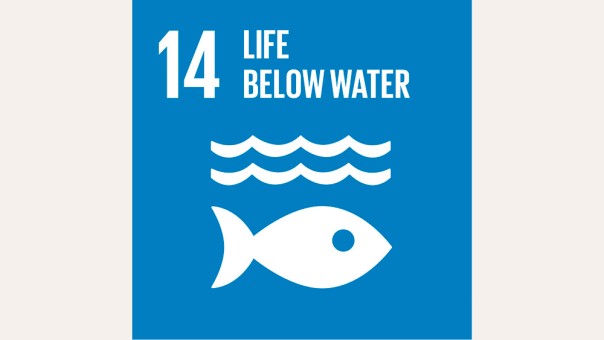
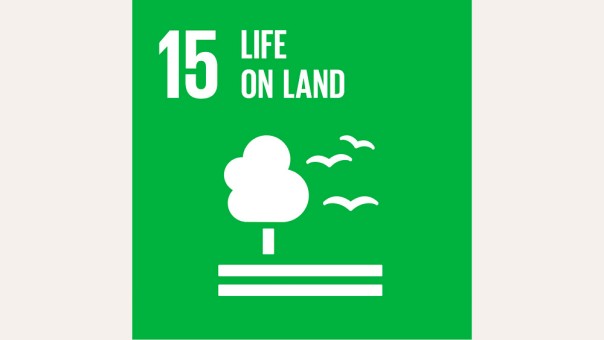
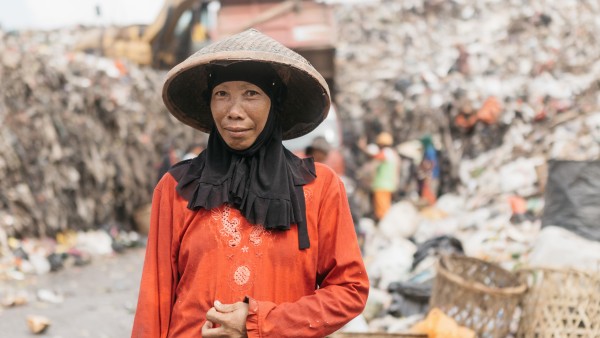
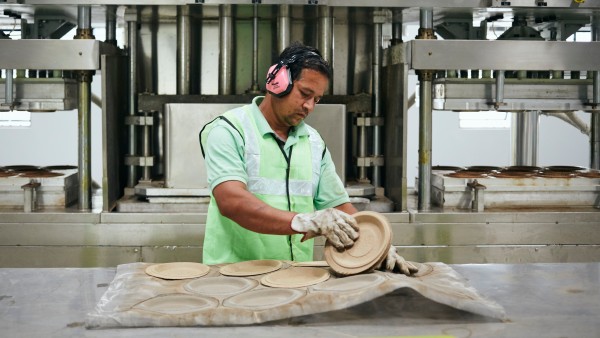
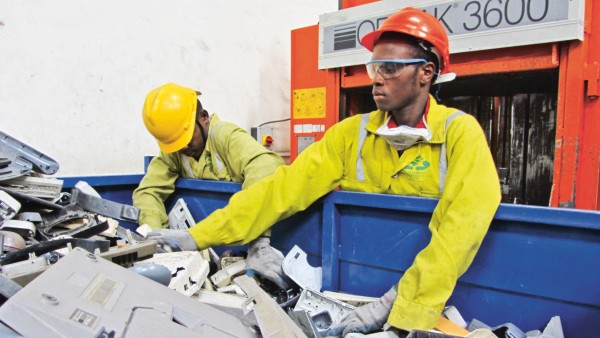
Data protection principles
If you click on one of the following icons, your data will be sent to the corresponding social network.
Privacy information